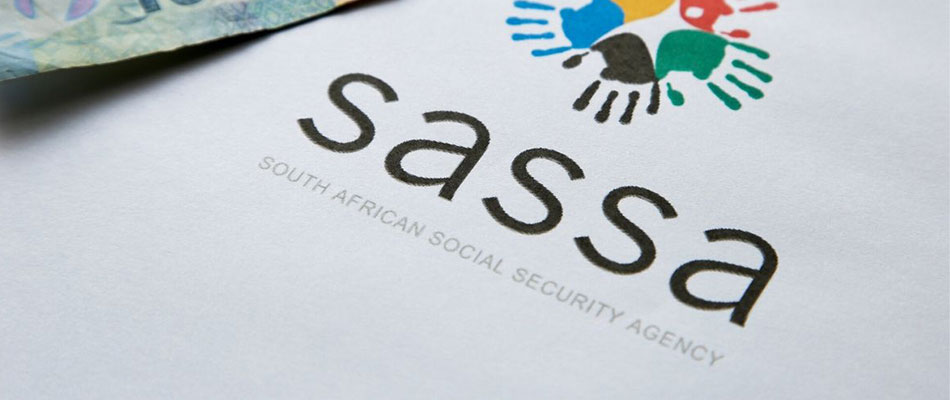A bachelor pass is one of the key achievements that students aim for in their matric year. Earning a bachelor’s pass during your matric year is essential if you want to further your education in South Africa. Knowing the bachelor pass requirements can assist in planning your academic path, meeting the necessary criteria, and gaining entry into a university programme. Meeting the criteria for a bachelor’s degree is the initial step toward reaching your higher education goals, whether in science, education, law, or business.
In this article, we will explore what a bachelor pass is, the significance of meeting matric bachelor pass requirements, and ways to enhance your likelihood of attaining this significant goal.
What is the NSC?
The National Senior Certificate (NSC) is the formal qualification that students in South Africa receive after completing their Grade 12 year, also known as matric. Meeting NSC pass requirements proves that you have completed your secondary education and is essential for furthering your studies at institutions of higher learning, whether universities, colleges, or technical and vocational training centres.
The Department of Basic Education issues the NSC, a significant achievement for students, signifying the completion of 12 years of education. There are three primary pass levels present.
- Bachelor Pass: This allows you to apply for a bachelor’s degree at a university.
- Diploma Pass: This allows you to enrol in diploma courses.
- Higher Certificate Pass: This permits entry to certificate courses and vocational education.
What is Bachelor Pass?
A bachelor pass is considered a top accomplishment in the matriculation system. Having a bachelor pass allows you to meet the basic criteria to apply for a bachelor’s degree at any South African university. However, meeting the bachelor pass requirements does not ensure direct admission into a university programme, as various universities might impose extra conditions.
What Are the Bachelor Pass Requirements?
In order to achieve a bachelor’s pass in South Africa, students must fulfil certain academic requirements established by the Department of Basic Education. This qualification enables you to seek admission to a bachelor’s programme at any university in the nation as long as you also fulfil the school’s specific admission criteria. The criteria for obtaining a bachelor’s degree ensure that students display competence in important subjects, establishing a strong academic base for future education.
To meet the pass requirements for bachelors pass, you must:
- Achieve at least 40% in your home language.
- Get at least 50% in four other high credit subjects.
- Score a minimum of 30% for one other subject for the Senior Certificate (Amended) / Obtain 30% for two other subjects for the National Senior Certificate.
These marks are crucial because universities use them to determine whether you meet the requirements for a bachelor pass or not. Each university may have its own additional admission requirements, depending on the programme.
What Happens if You Don’t Meet Bachelor Pass Requirements?
If you do not meet the matric bachelor pass requirements, you may still qualify for a diploma or certificate programme. Failing to meet the requirements for a bachelor pass limits your immediate options for degree-level studies. However, this does not mean that your academic journey is over. South Africa’s education system provides different pass levels that allow you to pursue other qualifications or upgrade your marks if you aim to achieve a bachelor’s pass in the future.
Alternative Pass Levels
If you don’t meet the bachelor’s pass requirements, you can still explore alternative paths to continuing your education. Let’s take a look at some of the alternative pass levels below.
- Diploma Pass: A diploma pass allows you to enrol in diploma courses at technology colleges or universities. While it doesn’t qualify you for degree programmes, it still opens doors to many career-focused educational opportunities. To achieve a diploma pass requirements, you must:
- Get at least 40% in your home language.
- Achieve 40% or higher in four other subjects.
- Obtain 30% in one other subject.
A diploma pass is suitable for students who want to pursue a more practical qualification, such as nursing, teaching diplomas, or technical studies.
- Higher Certificate Pass: A higher certificate pass allows you to enrol in higher certificate programmes at colleges. These programmes are often shorter and provide skills-based learning, equipping students for specific careers. The higher certificate pass requirements include:
- A minimum of 40% in your home language.
- At least 30% in two other subjects.
- You must pass the other subjects with a minimum of 30%.
This pass level is aimed at students who may not have met the more stringent requirements for a bachelor pass but still want to continue with further education and build their skills in specialised fields.
Bridging Courses and Upgrading Marks
If you don’t meet the bachelor pass requirements, you can still improve your chances through bridging courses and upgrading marks:
- Supplementary Exams: The matric supplementary exams offer a chance to improve your marks in specific subjects after your final results. They provide an opportunity to achieve the necessary scores for a bachelor’s pass without repeating the entire year.
- Upgrading Centres: Special centres offer additional classes and support for students needing to boost their grades. They focus on helping you re-take exams with better preparation to meet the requirements for a bachelor’s pass.
- Bridging Courses: These are short courses designed to strengthen your academic skills in key subjects, helping you qualify for higher education programmes later. They are ideal for filling gaps in knowledge and meeting entry requirements for degree programmes.
University Open For Bachelor Pass Requirement
Applications for admission to Regenesys close on 3 February 2025. Prospective students need to pay an application fee of R1,100 and can apply for programmes offered at the Johannesburg campus. Ensure you have internet access, a valid email address, and a phone to complete the application process.
Key details:
- Closing date: 3 February 2025
- Application fee: R1,100
- Campus: Johannesburg
What is the APS Score For Bachelor Pass?
The Admission Point Score (APS) is a system universities use to evaluate if students meet the bachelor pass requirements. Your matric marks are converted into points, which universities then use to determine your eligibility for admission. An APS score between 23 points (for National Senior Certificate) and 21 points (for Senior Certificate (Amended) is needed for most degree programmes, but this varies depending on the university and programme.
How to Improve Your Chances of Achieving a Bachelor Pass?
- Study Regularly: Consistent study habits can help you stay on top of your workload and ensure you meet the matric bachelor pass requirements.
- Focus on Key Subjects: Pay special attention to your home language, Mathematics, and core subjects like Sciences.
- Take Extra Lessons: If you’re struggling in specific areas, extra tutoring can help improve your understanding.
- Use Past Papers: Practising with past exam papers can familiarise you with the exam format and types of questions.
- Time Management: Develop a study timetable to ensure you cover all subjects thoroughly.
Career and Study Options After Earning a Bachelor Pass
Once you meet the requirement for bachelor pass, many career and study options become available to you:
- University Degrees: You can apply for a wide range of degree programmes at South African universities.
- Bridging Courses: If your marks don’t qualify for the programme of your choice, some universities offer bridging courses to help you improve.
- Diploma Programmes: You can also consider diploma programmes if you are interested in a more practical career path.
Achieving a bachelor pass opens up many doors in terms of higher education and career opportunities.
Programmes to Enroll in after Bachelors Pass Requirement
Kickstart your career journey after matric with programmes aligned to the Bachelor’s Pass requirements. Whether you’re passionate about business, law, public management, or computer science, these academic options are crafted to provide the comprehensive skills and knowledge needed to thrive in your chosen profession.
If you have any questions about a programme, don’t hesitate to reach out. Our dedicated team is here to assist with your inquiries, guide you through the application process, and provide the information you need to make informed decisions about your future.
Admission Process After Matric Bachelors Pass
After completing Matric Bachelors Pass, students in South Africa can pursue further studies at universities, colleges, schools or other tertiary institutions. The admission process typically involves the following steps:
- Step 1: Choose a Programme
- Step 2: Check Admission Requirements
- Step 3: Apply Online or In-Person
- Step 4: Submit Supporting Documents
- Step 5: Wait for Admission Confirmation
- Step 6: Register for Your Programme
- Step 7: Apply for Financial Aid or Scholarships
- Step 8: Begin Your Studies
Conclusion
Understanding the bachelor pass requirements is vital for matriculants aiming to pursue university degrees. By focusing on your studies, preparing effectively, and keeping track of your performance, you can achieve the necessary marks to continue your education at a higher level. Even if you don’t meet the requirement for a bachelor pass, alternative options such as bridging courses or diplomas are available, offering another path to your academic and career goals.
When deciding to pursue your bachelor’s studies, consider Regenesys. We provide a variety of bachelor’s programmes at undergraduate and postgraduate levels in business, public management, finance, technology, and law.
Bachelor Pass Requirements – FAQs
What are the requirements for a bachelor pass?
You need 40% in your home language, 50% in four other high credit subjects, and at least 30% in one other subject for the SC(A) / 30% in two other subjects for the NSC.
Can I still study if I don’t meet the requirement for bachelor pass?
Yes, you can pursue a diploma or certificate programme or complete a bridging course to improve your marks.
Which subjects are most important for a bachelor pass?
Your home language, Mathematics or Mathematical Literacy, and additional core subjects like Physical Science and Life Sciences are key.
What can I study after earning a bachelor pass?
A bachelor pass allows you to apply for degree programmes at universities or pursue diploma or bridging courses.
What happens if I fail one subject but pass the others?
You might still meet the bachelor pass requirements if you have passed your key subjects, but failing a subject could impact your APS score.
Does Life Orientation count towards the requirement for bachelor pass?
No, Life Orientation does not count toward your APS score or bachelor pass requirements.






